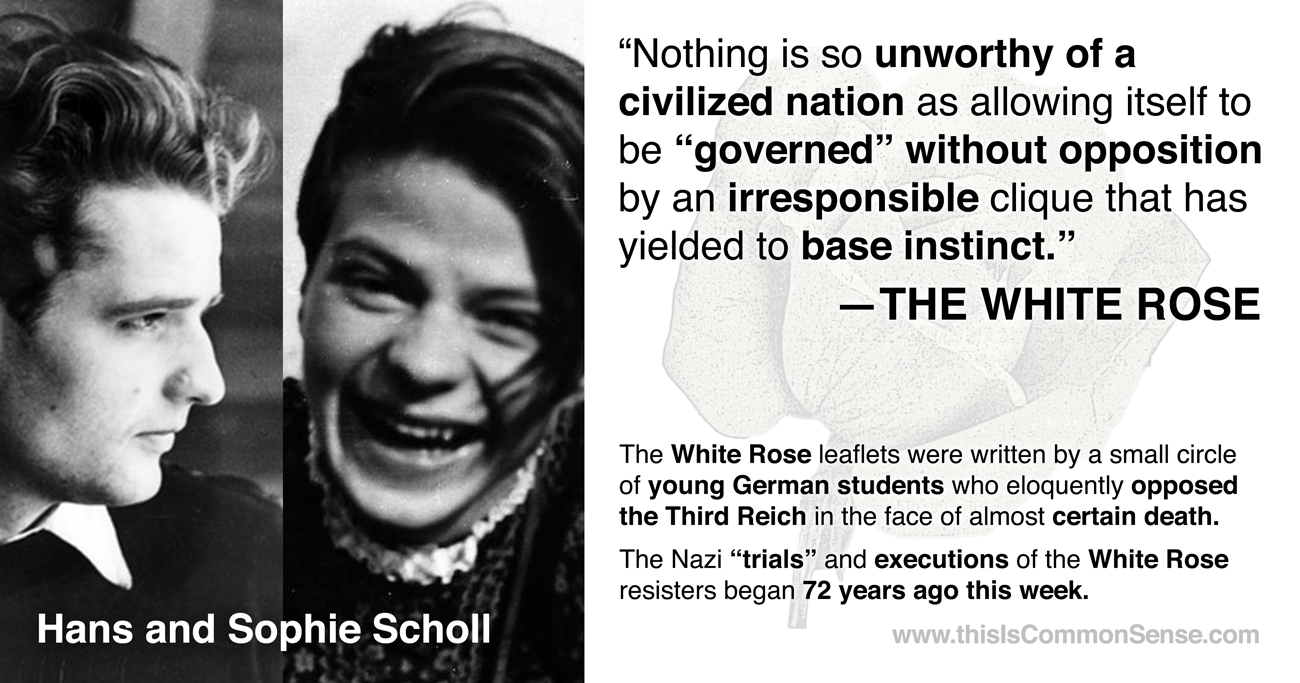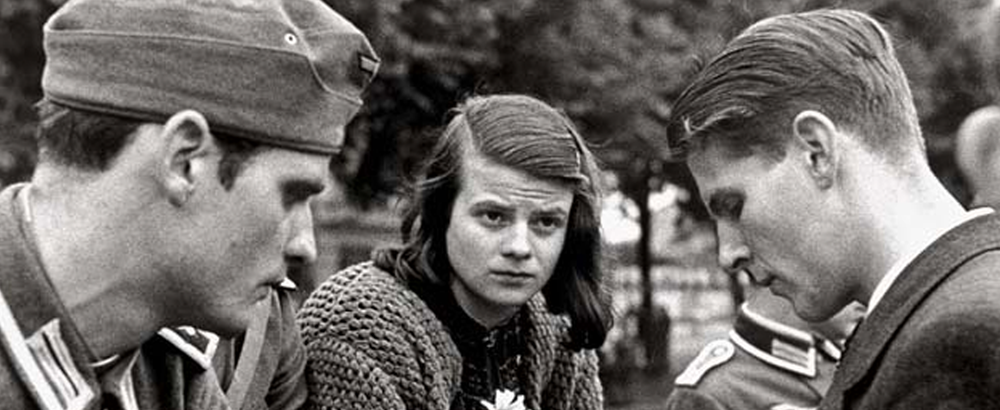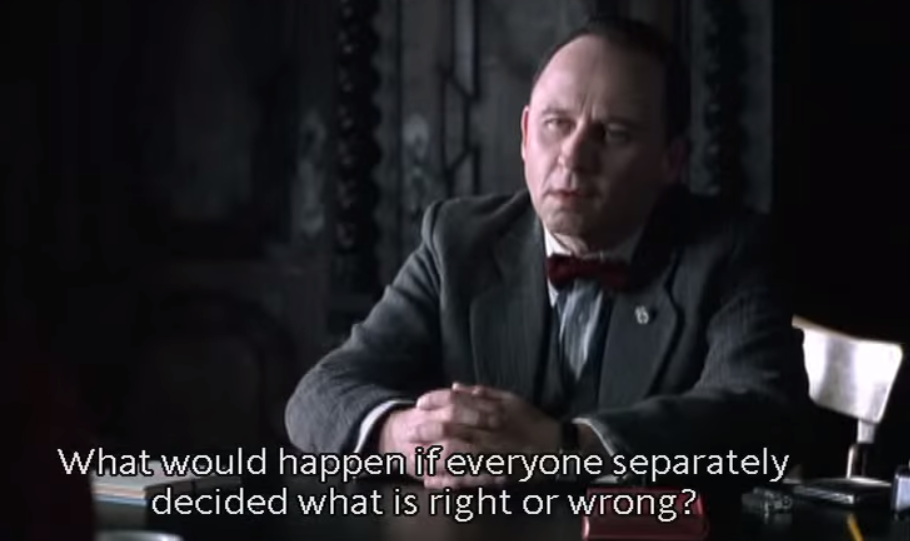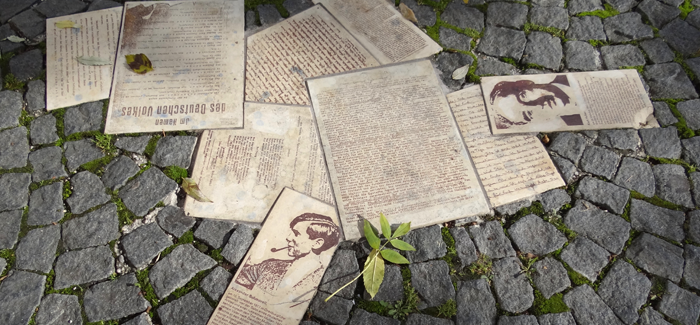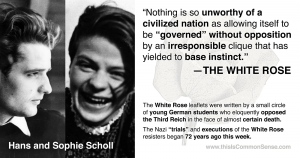Today marks a solemn anniversary. Seventy-nine years ago — on Feb. 22, 1943 — three German students at the University of Munich were tried for treason by the Nazis, convicted and then executed, all in one day.
The method of execution: guillotine.
Days earlier, Hans Scholl and his sister Sophie had been caught distributing a leaflet at the university. It was damning — of the Nazi regime; and, from the perspective of that Nazi regime, of the Scholls: “In the name of German youth, we demand restitution by Adolf Hitler’s state of our personal freedom, the most precious treasure we have, out of which he has swindled us in the most miserable way.”
Hans had in his pocket a draft of another leaflet, in Christoph Probst’s handwriting. That seventh leaflet, never distributed, led to the arrest and execution of Christoph, along with Hans and Sophie.
The three were part of a cadre of students who wrote and distributed leaflets under the name The White Rose — a symbol of purity standing against the monstrous evil of the Third Reich. The leaflets decried the crimes of National Socialism, including the mass murder of Jews. And they urged Germans to rise up.
Three more members were later executed: Willi Graf, Alex Schmorell and Professor Kurt Huber. Another eleven were imprisoned.
Their resistance was ultimately futile, unsuccessful … but not pointless.
They would not remain cogs in the killing machine that had taken the most advanced society in the world to the depths of depravity. They took a stand against what George Orwell later characterized as “a boot stamping on a human face, forever.”
We often say, with earnest piety, “Never again.” But our dedication should be inspired by the White Rose. When we encounter tyranny, think of the Scholls and say “Again for Freedom.”
This is Common Sense. I’m Paul Jacob.
Further reading: For an excellent account of The White Rose, consult the aptly titled A Noble Treason, by Richard Hanser. See also Jacob Hornberger’s The White Rose — A Lesson in Dissent. The Orwell quotation is from the dystopian novel 1984. You can read the six pamphlets on this website.
This article is reprinted from 2019. A previous appreciation was published on Townhall in 2010.
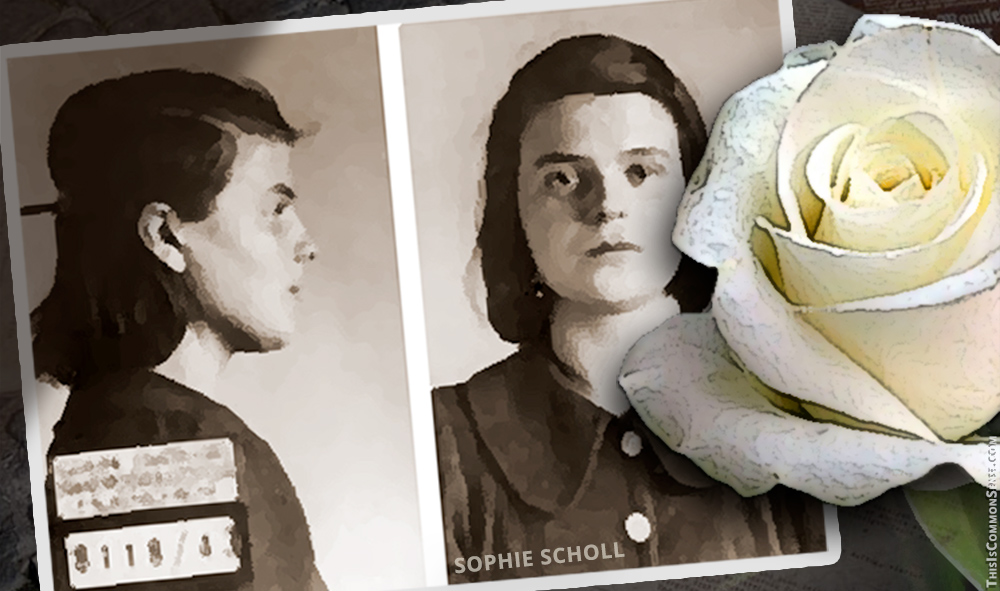
—
See all recent commentary
(simplified and organized)

